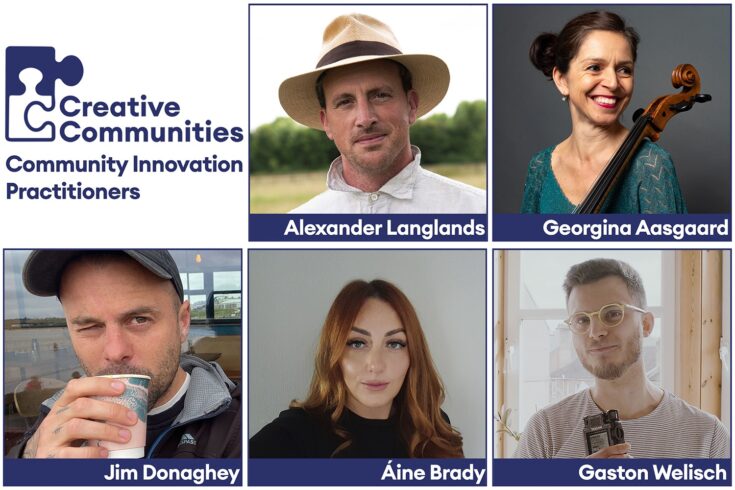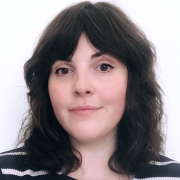A ‘Creative Community’ describes a place-based process of cross-sector R&D collaboration that brings together diverse partners with the shared aim of generating economic and social value through new cultural activity. Since 2012 Creative Communities R&D has been accelerated by contemporary contexts including EU Exit, the COVID-19 pandemic, and the cost of living and energy crises.
Our new report – ‘By All, For All: The Power of Partnership’ – maps a decade of the Arts and Humanities Research Council (AHRC)-funded cross-sector collaborative R&D from 2012 to the present day and explores more than 1,600 non-academic partners that have been engaged in AHRC Creative Communities R&D across all four nations of the UK and all regions of England. It reveals for the first time the reach and scale of AHRC-funded cross-sector R&D collaborations with communities and non-academic partners, especially those who are affected by geographic, economic and social inequalities.
The report profiles case study examples of how and why cross-sector partners and communities in R&D can enhance the quality and resilience, reach and sustainability of innovation and funding opportunities for greater collaboration with communities to meet R&D and Levelling Up missions. Its new evidence base informs recommendations for a shift in funding policy away from individualised competition and towards cross-sector collaboration, funding opportunities for the generation and management of better data by funders, for further evidence capture and sharing of the multiple ‘values’ culture brings to the economy and society, and for the creation of new routes into research for non-academic collaborators to truly create a research culture that is by all, and for all.
Co-creation is not a ‘one-size fits all’ solution to tackling shared issues and must be applied thoughtfully, but it can be difficult for existing systems and processes to meet these needs. While co-creation can help to empower communities, it can also worsen inequalities if context is not properly considered. Investing in overcoming these barriers – by rethinking funding, partnerships, and models of R&D – is crucial to harnessing the innovative potential of arts and humanities R&D today.
In phase two of the programme, we will be actioning some of our recommendations through the first ever survey of AHRC non-academic R&D partners and a series of policy labs with each of the devolved governments and UK central government to address the opportunities and barriers facing cross-sector co-creation of R&D in our regions and nations.
Community innovation practitioners
Collaboration is a powerful tool for Creative Communities, helping to overcome inequity and build connection. All too often, focus is placed upon the outputs of collaboration, rather than the sometimes-difficult processes necessary to sustain partnerships. If we invest in co-creation, and shift focus to what can be learned about it as a vital process, R&D can test new ideas and approaches to creating, sharing, and using knowledge to tackle shared challenges.
Actioning our recommendation to invest in co-creation, Creative Communities are launching the Community Innovation Practitioner (CIP) Pilot. Through this innovative pilot programme, five CIPs will be embedded in collaborative cross-sector research projects within AHRC impact acceleration accounts (IAAs) from September 2023 to September 2024.
Our CIPs are:
- Gaston Welisch (University of Glasgow IAA) – Applying design-led innovation to improve community co-created R&D
- Jim Donaghey (Ulster University IAA) – Get Portrush a skatepark! Nurturing skateboard culture on Northern Ireland’s north coast
- Áine Brady (Queens University Belfast IAA) – Using the arts to empower communities to break cycles of silence
- Georgina Aasgaard (University of Liverpool IAA) – Fostering wellbeing through music collaboration and co-creation in the community
- Alexander Langlands (Swansea University IAA) – Heritage at risk: creative communities for sustainable powerful places in de-industrialised South Wales

Community Innovation Practitioners. From top left: Alexander Langlands, Georgina Aasgaard. From bottom left: Jim Donaghey, Áine Brady, Gaston Welisch. Credit: Creative Communities, Northumbria University
Located across all four nations of the UK, our CIPs will work collaboratively with cross-sector partners to address key challenge areas identified by the UK government levelling up agenda: education and skills, health and wellbeing, environment and climate, and civic identity and pride in place. By focusing on the process of cross-sector collaboration, their research will capture vital new knowledge about co-creation methodologies and the roles of communities and non-academic partners promoting more inclusive models of innovation. This new knowledge holds potential benefits both within and beyond the arts and humanities sector, offering vital insights on collaborative practices and co-creation methodologies that can benefit the wider R&D ecosystem.
Each CIP will generate a case study on their project, offering insight into the partnerships, processes and policies that shape and are shaped by the local communities they are working with. The CIPs will also work with a podcast producer to create a podcast capturing the voices of the multiple actors involved in their co-created R&D. A five-episode podcast series reflecting on the learnings from the pilot will be available to download in autumn 2024.
Together, the five CIPs will form a national network that will be facilitated by a programme of mentorship, training activities, workshops, and events provided by the Creative Communities team. The CIP network will forge a new community of practice to share learning and develop new ways of supporting collaborative R&D.
The CIP Pilot also trialled new application processes design to facilitate collaborative bidding and open new routes into research partnerships for non-academic collaborators. Applicants could choose between a 1,000-word written submission or an eight-minute video application in which to showcase the voices of their partnerships and places. Through the evaluation of these new application processes, the Creative Communities programme will contribute to the development of more diverse and equitable R&D frameworks and the creation of more inclusive innovation ecosystems.
Policy labs
Our report evidences how and why effective Creative Communities can ‘pollinate policy’ when they engage in diverse partnerships that are embedded in local culture. This connection builds new knowledge that enhances understanding of regional policymaking and that can go on to shape national policy development. To develop this capacity for policy co-creation, the Creative Communities programme is hosting a series of policy labs across the UK in spring 2024.
Using experimental creative facilitation methodologies, the labs will harness co-creation processes to unite a diverse range of cross-sector stakeholders around a series of key challenge areas in R&D with the aim of generating new solution suggestions. To capture key thinking and connect the different policy contexts of the devolved regions and nations, the learning from the labs will be made available on a new open access policy forum hosted on the programme website from autumn 2024.
Partner perspectives
Through mapping collaborative R&D across the UK, our report identified for the first time over 1,600 non-academic partners that have collaborated with AHRC in R&D involving culture and communities. Yet little learning has been captured about the experiences of these collaborative partners. This knowledge is needed to strengthen understanding of what motivates non-academic partners to engage in collaborative R&D, what each partnership leverages, what works and what barriers are preventing future growth and scaleup of collaborative cross-sector working.
In response to this identified need, in autumn 2023 the Creative Communities programme will be conducting the first ever survey of non-academic partners who have engaged in AHRC research between 2012 and 2022. The survey will ask previous recipients of funding to reflect on their experience, learning, opportunities, and barriers in working as part of a Creative Community. The survey will aim to identify opportunities and requirements relating to skills, resources and infrastructure, offering opportunities to build and deliver new partners into future AHRC research collaborations.
By all, for all
To unlock the innovation ecosystem of the UK, diverse sectors must prioritise community engagement and partnership R&D to create a rich, diverse and flexible network of knowledge that can drive economic growth and respond to the challenges and opportunities facing us now and in the future.
Executive Chair Christopher Smith is clear about AHRC’s commitment:
Everyone everywhere should benefit from and have the opportunity to engage in R&D through creativity and culture at a local level no matter their location, means or background. And arts and humanities must continue to innovate in mechanisms of funding, in methods of knowledge and exchange, and in products and services which change people’s lives.
By providing new knowledge of past activities and identifying potential areas for growth, the AHRC Creative Communities programme advocates for a joined-up cross-sector approach to flipping models of R&D, funding and governance to bring together partners in cooperation rather than competition to grow R&D by all, for all.
Find out more about the AHRC Creative Communities programme.






